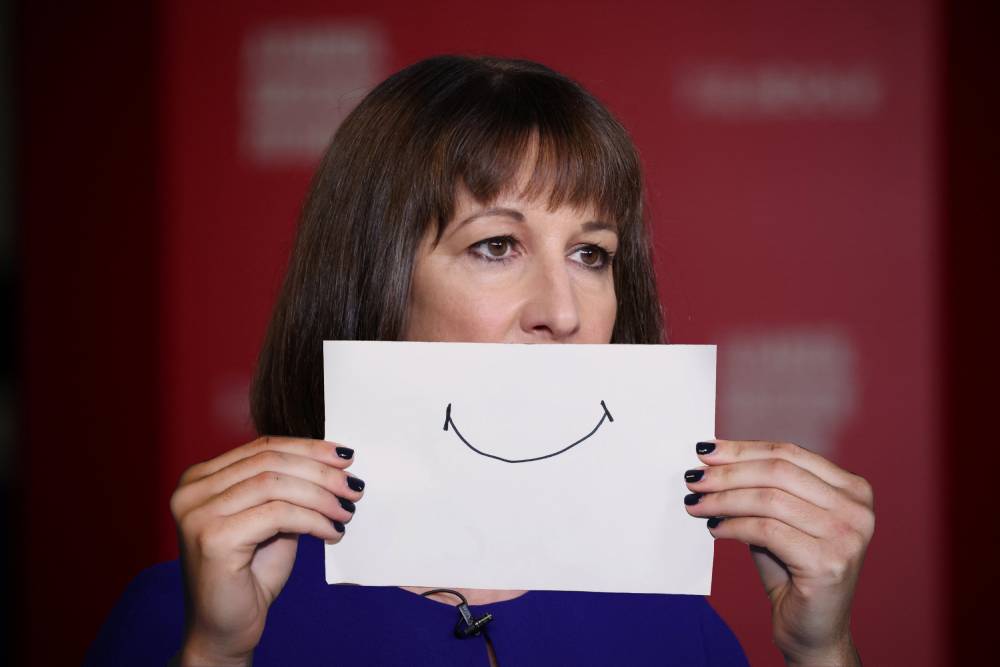In a radical attempt to improve Britain’s collective mood (and, conveniently, plug a few budget holes), Chancellor Rachel Reeves has proposed a nationwide tax on complaining. Dubbed the “Moan Levy”, the initiative aims to reduce negativity while generating billions in additional revenue from the UK’s most abundant natural resource: grumbling.
The Need for a Moan Tax
With public dissatisfaction levels reaching record highs, government officials believe excessive complaining is not only unproductive but also actively worsening economic forecasts. A recent report by the Office for National Statistics found that:
- The average Brit complains 12 times a day, with peak moaning hours between 7 AM (train delays) and 11 PM (TV licensing fees).
- Weather-related grievances alone could have funded two new NHS hospitals last year.
- If negative conversations in pubs were taxed, the UK’s deficit could be cleared within six months.
In a press conference, Reeves defended the proposal, stating, “For too long, Britain has been stuck in a cycle of negativity. This tax will encourage citizens to think before they moan—literally making optimism a more cost-effective lifestyle.”
How It Works
Under the new law, complaints will be taxed at a tiered rate, depending on severity and volume. The guidelines are as follows:
- Minor Moan (£1 per complaint) – Complaints about mild inconveniences, e.g., “The tea tastes weird today.”
- Moderate Whinge (£5 per complaint) – Criticisms of government policies, petrol prices, or public transport.
- Heavy Grumble (£10 per complaint) – Full-on rants about “how things were better in the old days.”
- Pensioner Exception – Free complaints for over-65s, but only if accompanied by a story about how much cheaper things were in 1973.
To enforce the policy, the government will roll out smart microphones in key moaning hotspots such as:
- Post office queues.
- GP waiting rooms.
- London pubs after 10 PM.
- Any place where someone’s just looked at their electricity bill.
For online complaints, social media platforms will introduce an automatic deduction system, where users are charged per negative post. Meta has already announced a feature that will link British Facebook accounts directly to HMRC for seamless moaning taxation.
Public Reaction
Predictably, the proposal has sparked outrage, leading to an explosion of complaints—which, ironically, has already generated an estimated £2.5 million in taxable revenue.
- Critics argue the policy is “fundamentally un-British,” with one MP stating, “If we can’t complain about the weather, what’s left of our national identity?”
- Economists warn that excessive taxation of complaints could lead to an underground black market of moaning, where people gather in secret to complain without financial consequences.
- Meanwhile, Scotland has declared itself a ‘Whinge-Free Zone’, making it an attractive destination for English day-trippers in need of tax-free ranting.
International Response
Other countries are watching the UK’s experiment closely:
- France dismissed the idea as “laughable,” stating that complaining is a national right, not a taxable offense.
- Germany offered to create a Complaint Amnesty Program, allowing Britons to offload their grievances tax-free while on holiday.
- Sweden is interested but concerned about the impact on IKEA customer service centers.
What’s Next?
If the Moan Levy proves successful, the UK government may introduce additional emotion-based taxes, including:
- The “Sarcasm Surcharge” – For every “Oh, great, another train strike.”
- The “Doomscrolling Duty” – A charge on excessive news consumption about the state of the country.
- The “Queue Jumping Fine” – Not only illegal but now taxable, with 100% of funds redirected to queue-compliant citizens.
For now, the British people must decide: is it worth paying to grumble, or should they attempt the unthinkable—keeping calm and carrying on?
